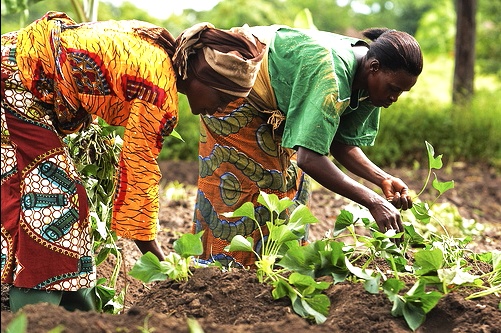Women decry neglect in agric interventions
The Nigerian Women for Agricultural Progress has raised concern over their neglect in most of the country’s agricultural interventions. Speaking at their national convention yesterday in Abuja, the national coordinator of the association, Mrs. Omolara A Svensson, said they were committed to changing agribusiness narratives in order to become the leading light of sustainable progress […]

nigerian women for agricultural progress
The Nigerian Women for Agricultural Progress has raised concern over their neglect in most of the country’s agricultural interventions.
Speaking at their national convention yesterday in Abuja, the national coordinator of the association, Mrs. Omolara A Svensson, said they were committed to changing agribusiness narratives in order to become the leading light of sustainable progress for Nigerian women farmers.
Pointing out the disparity between governmental interventions and the actual needs of women farmers, she called on the President, the First Lady, the Ministers of Agriculture and Food Security, Women Affairs to reevaluate their approach, adding that there was a need for direct collaboration with women farmers for a more inclusive and effective strategy.
Mrs Svensson stated that there was a pressing need for women to unify their voices within the agricultural sector to combat the challenges many women face in accessing financial support for their farm operations.
- 2 dead, eight injured as abbatoir fence collapsed in Lagos
- Council establishes centre for data on agrochemicals, others
She expressed concern over the instances where government interventions failed to reach genuine women farmers, which perpetuate a cycle of inequality.
On her part, Mrs Asma Begum Mirza, a Kaduna-based rice farmer and the coordinator of the association in the northwest, worried that the current state of poverty and food insecurity is worrisome, calling on the government to provide more support to the women particularly as they constitute about 70 percent of the workforce in agriculture.
She said that government interventions are most times skewed against women, adding that as a farmer, she has never benefited from any government programme.
The southwest coordinator, Mrs. Enitan Onitiri, also called on the women to work in unity in order to present a common ground and united front for sustainable progress in the country’s agricultural sector.
